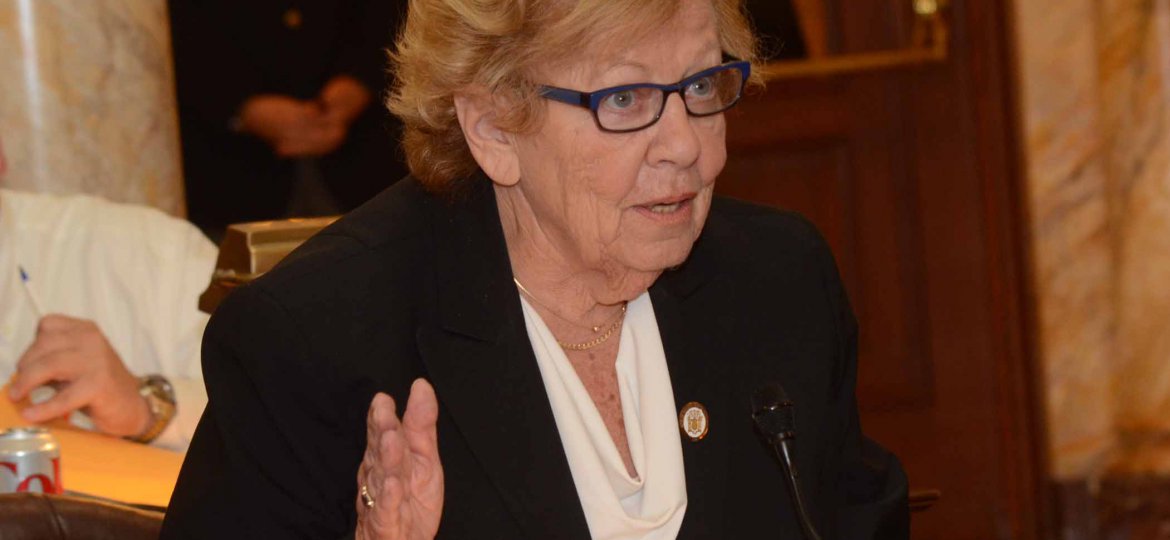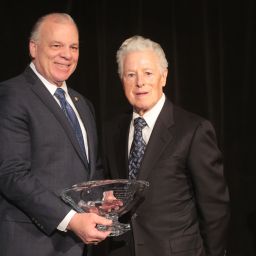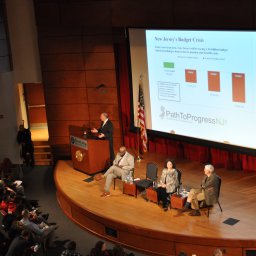
TRENTON – Legislation sponsored by Senate Majority Leader Loretta Weinberg and Senator Bob Gordon to establish the Mike Adler Aphasia Task Force to ensure there are appropriate informational resources and support systems available in the state to assist people with aphasia, and their families, was approved today by the Assembly. It now goes to the governor’s desk.
Aphasia is a disorder of the brain, which affects a person’s ability to communicate, and which most commonly occurs after a stroke or traumatic brain injury. However, the condition does not affect a person’s intellect. It is estimated that one million people in the United States have aphasia, more than the number of people suffering from Parkinson’s disease, muscular dystrophy, multiple sclerosis, or cerebral palsy.
“It is estimated that more than one million people in the United States suffer from aphasia, but it is not well known or understood by the vast majority of the public. Unfortunately, some people with this disorder become withdrawn and isolated as a result of the challenges they face with communication. Since we know speech therapy and other rehabilitative services lead to improvement, it’s important that programs are available to our residents and that information on how to access them is publicized,” said Senator Weinberg. “The task force will undertake the work to do that.”
“Aphasia is most common among older people, but can affect those of all ages who have suffered severe head trauma and cause difficulty speaking and, sometimes, difficulty with reading, writing, and understanding what other people are saying,” said Senator Gordon. “This can lead to a feeling of hopelessness and depression by those affected. Establishing a permanent aphasia task force to ensure that our residents have the information they need to obtain services and an appropriate support system will help individuals and their families who are struggling with how to deal with the challenges posed by this disorder.”
The bill (S2286) will create a 13-member “Mike Adler Aphasia Task Force” in the Department of Health (DOH). Mike Adler was a businessman, philanthropist, and founder of the Adler Aphasia Center with campuses in Maywood and West Orange, who passed away in September 2015 at his home in Franklin Lakes, New Jersey. The purpose of the task force will be to: monitor the prevalence of aphasia in New Jersey; assess the unmet needs of persons with aphasia, and their families; identify, and facilitate the establishment of, aphasia support groups and other support and informational resources designed to assist in satisfying the unmet needs of residents with aphasia, and their families; and provide recommendations to the Governor and Legislature for legislation or other action that would further facilitate the support of persons with aphasia, and their families.
The type and severity of language dysfunction suffered by a person with aphasia depends on the precise location and extent of damaged brain tissue. Generally, there are four types of aphasia: (1) expressive aphasia, which involves difficulty in conveying thoughts through speech or writing; (2) receptive aphasia, which involves difficulty in understanding spoken or written language; (3) anomic or amnesia aphasia, the least severe form of aphasia, which involves difficulty in using the correct names for particular objects, people, places, or events; and (4) global aphasia, the most severe form of aphasia, which involves the loss of almost all language function, both comprehension and expression.
The Senate approved the bill by a vote of 36-0. The Assembly approved it 74-0. The law would take effect immediately.












